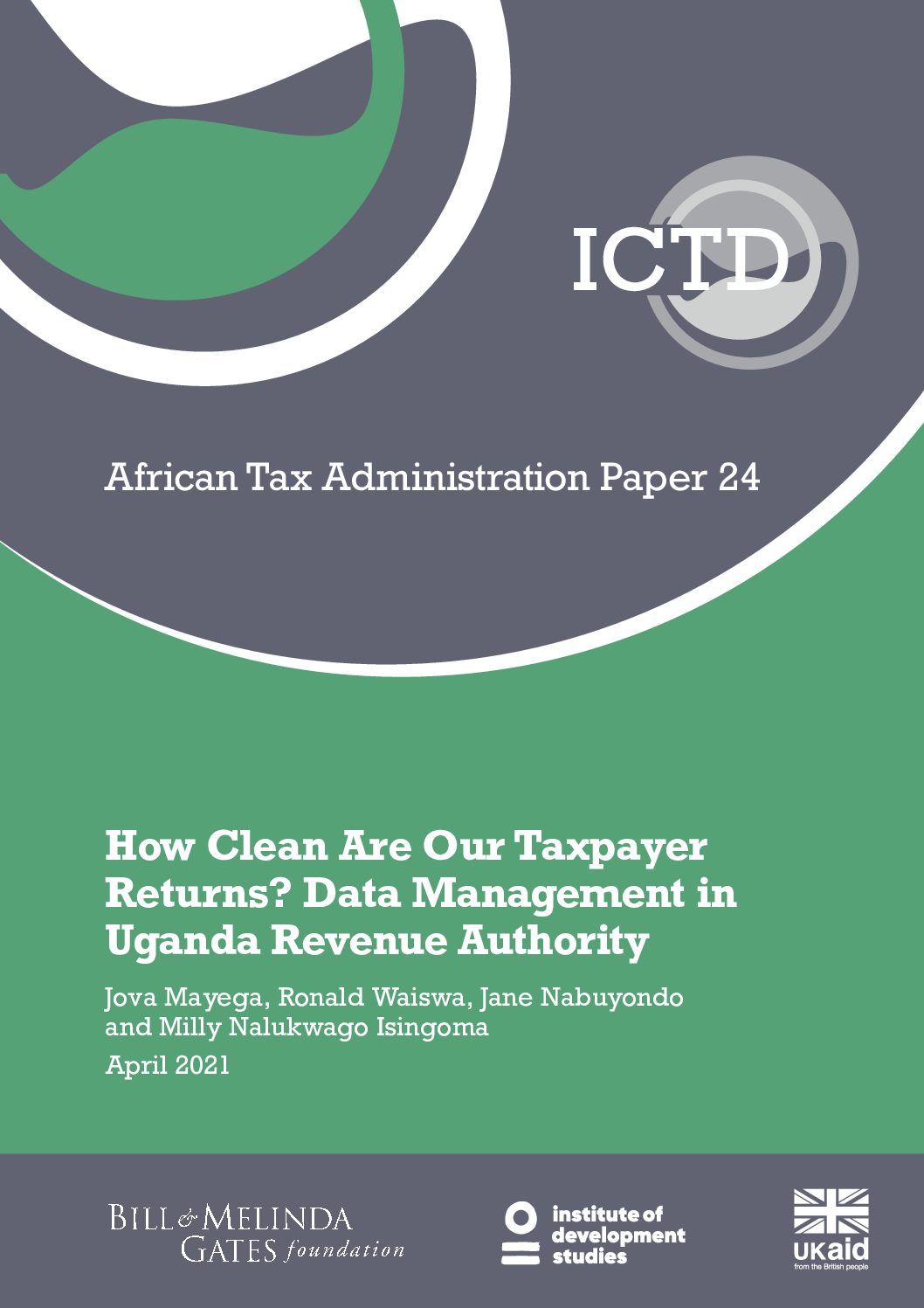African Tax Administration Paper 24
The paper assesses the cleanliness of taxpayer returns at the Uganda Revenue Authority
(URA) in terms of: (a) completeness – the extent to which taxpayers submit all the required information as specified in the return forms; (b) accuracy – the extent to which the submitted information is correct; (c) consistency – the extent to which taxpayers submit similar information in cases where the same information is required in different types of tax returns, or submitted in the same type of tax return, but for different time periods; and (d) permanence – the extent to which the returns are likely to be later modified by taxpayers.
By digitising business processes, URA is collecting large amounts of data on individuals and firms in the course of administering taxation. This data is indeed a strategic asset as it can be used for improving tax compliance. The data however needs to be of sufficient quality for accurate decision making. Our assessment has identified a number of data quality gaps that exist in URA tax return information.
